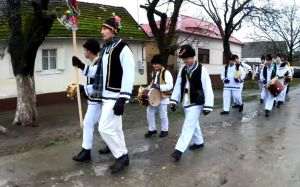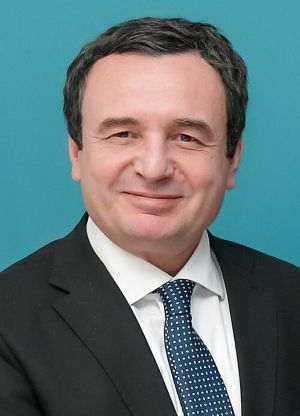The management of the National Mineral Resources Agency (ANRM) met on Tuesday with Shelley Saxen, deputy economic advisor of the US embassy in Bucharest. On the agenda was last Friday's order issued by the ARNM which establishes the reference price for natural gas mined in Romania, in order to set the royalties will be calculated based on the trading prices on the hub of CEGH Vienna, according to sources close to the talks.
Officially, the meeting had scheduled a discussion about the plans for the future of the ANRM, and among them, president Gigi Dragomir mentioned the revision of the laws of oil and mining, respectively of the articles regulating the royalties and the reference price, according to our sources.
Thus, the US official said that she heard concerns over the fact that the reference price is greater than the sale price and wanted to know the reasons for the updating of the price, why the Vienna Hub was chosen as the reference and whether the ANRM has also taken into consideration the opinions expressed in the market, our sources told us.
According to them, the president of the ANRM has explained that the reference price for natural gas hadn't been updated since 2008, that the liberalization of the market has occurred since then and that the order of the ANRM was meant to carry out the decisions of the Court of Auditors, as confirmed by the courts. The sources have also mentioned that the ANRM has conveyed to the US embassy that the formula for calculating the reference price has room for improvement and that it will be complemented by an updating of the legislation, in order to take into account the quality of the deposits that each producer extracts from.
The representatives of the ANRM said that the local exchange for the trading of natural gas was immature, and the hub in Vienna has been identified as the closest to the Romanian conditions, and explained that there are no reasons for concern that the price of natural gas might increase, as the market price in November was 2 lei below the reference price.
The American official told the management of the ANRM that American companies are interested in investing as much as possible in Romania. Our sources said that the talks also concerned the intentions of the Mazarin company to acquire some perimeters in Romania. "In order to get access to the data needed to acquire perimeters, the company was required to open an office for secret documents, that would work with a similar office at the ANRM. Because they didn't do that, they have even been fined, and the Embassy has asked whether the president had the ability to allow the lifting of secrecy.
She was told that it was not possible and that the best would be for Mazarin to open its secret documents office. The president conveyed to her that the ANRM is open for collaboration, but according to the law".
The order of the ANRM concerning the approval of the Methodology for setting the reference price for the natural gas extracted in Romania was published Monday in the Official Gazette and has come into effect.
In a recent debate, Dorinel Ursărescu, advisor at the ARNM, said that the Romanian government lost 7 billion lei over the last ten years due to failing to update the reference price for natural gas, according to the reports of the Court of Auditors, and he pointed out that unfortunately, the ANRM has been unwilling to update that price, which was left at the 2008 level.
The ANRM said in a press release sent on Friday that, through the Order concerning the approval of the Methodology for setting the reference price for natural gas extracted from Romania, the ANRM was carrying out the decisions of the Court of Auditors of 2010 and 2015, upheld through the ruling of the High Court of Cassation and Justice no. 972 of March 4th 2015: "The Court of Auditors has decided that, through the failure to update the reference price for natural gas of 2008, the Romanian state lost approximately 7 billion lei between 2008 and 2015".
The Court of Auditors has asked for the updating of the reference price for natural gas mined in Romania.
In turn, the Romanian Association of Oil Exploration and Production Companies (ROPEPCA), has reiterated in a press release that natural gas producers do not agree to the reference price being pegged to the Austrian quotations.
So far, Romanian natural gas producers have paid the royalty for the natural gas produced based on their realized revenues, a basic principle for any tax applied to revenues, ROPEPCA stated on Sunday.
OIL AND GAS PROFESSIONAL ASSOCIATION:
"The ANRM has approved a reference price which does not reflect the realities of the Romanian market"
The Oil And Gas Professional Association (FPPG) stated on Wednesday stated that it disapproved the decision of the ANRM to set the reference price for natural gas based on the trading prices on the CEGH natural gas hub of Vienna, based on a study conducted by the Oil and Natural Gas University of Ploieşti, which does not reflect the realities of the Romanian market.
The FPPG states: "As Romania does not export natural gas and not even one molecule reaches the Baumgarten gas hub, determining the reference price based on the CEGH index does not correctly reflect the price of natural gas extracted in Romania and therefore goes against the Law of Oil no. 238/2004, which stipulates in art. 49 paragraph (2), that "the oil royalty is set as a percentage quota of the value of the gross extracted output". Economic theory and professional standards applicable in Romania and internationally require the setting of the market value based on the sale transactions concerning the goods in question".
Thus, the value of the natural gas produced in Romania is the one derived from the transactions concluded by the producers, not an artificially set price, the Federation further states, and it added: "Thus, Romania becomes an isolated global case, where the reference price for natural gas is calculated based on transactions made in another country in which there are no natural deliveries of natural gas extracted from Romania. Not even in European countries where there are important hubs for the trading of natural gas (e.g. Great Britain, Holland) are the hub indexes used for calculating the specific royalties/taxes, but the actual prices charged by the natural gas producers are used instead. The same things happen in countries that do not have hubs (ex. Norway, Denmark). Alternatively in European countries (ex. Germany, Austria) a reference price is calculated based on the actual transactions made in the countries in question".
Second of all, we feel that using the Day-Ahead Market price as a benchmark is not applicable to the long term contracts, which are subject to other terms and a different mechanism for the forming of prices, says the Federation, which states: "The current formula uses the CEGH index without subtracting transport costs. Even if there will be natural gas produced in Romania delivered to the Baumgarten hub, the sale price charged by the producers will be the CEGH price less the cost of transport from Romania to Austria.
Thus, producers pay royalties calculated based on an incorrect value, a formula which contradicts the international practice and even regulations previously issued by the ANRM establishing the reference price for crude which took into account the transport costs (for instance, Order 98/1998).
Romanian producers will thus end up paying royalties calculated based on a price that wasn't realized, at an administrative price which has no connection to the realities of the value of the natural gas traded on the local market.
The FPPG strongly denies the statements of the ANRM concerning the absence of data concerning the titleholders. All the data requested by the ANRM has been provided and moreover producers supply monthly to the ANRE reports concerning the transactions that were made. Those reports could provide credible information for determining the value of natural gas in Romania, as a weighted average. The prices made based on the sale-purchase contracts are also the ones allowed by the fiscal authority for establishing taxes".
The FPPG also states that producers have so far paid the royalties based on the highest of the realized price and the reference price, meaning the State would collect the fair contribution based on the value of exploited resources, in line with applicable legal provisions.


















































